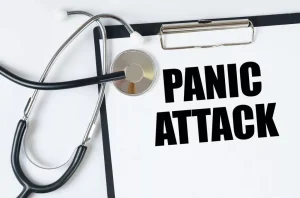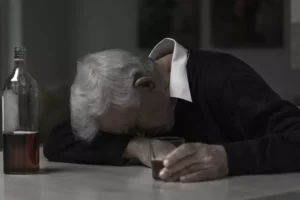
Those signs include severe agitation, rapid heartbeat (i.e., tachycardia), high blood pressure, and fever. About five percent of the patients who experience DT’s die from metabolic or cardiovascular complications, trauma, or infections (Victor and Adams 1953; Cutshall 1964). In addition to experiencing Stage 2 symptoms, those with severe alcohol withdrawal experience severe anxiety and moderate to severe tremors. The symptoms of alcohol withdrawal relate proportionately to the level of alcohol intake and the duration of the person's recent drinking habit. Alcohol withdrawal is common, but delirium tremens only occurs in 5% of people who have alcohol withdrawal.
Introduction ‐ Medical Burden of Alcohol Abuse
Moderately severe AWS causes moderate anxiety, sweating, insomnia, and mild tremor. Those with severe AWS experience severe anxiety and moderate to severe tremor, but they do not have confusion, hallucinations, or seizures. When not properly treated, AWS can progress to delirium tremens (Table 38–10). Following alcohol cessation, alcohol withdrawal syndrome typically presents as minor symptoms such as mild anxiety, headache, gastrointestinal discomfort, and insomnia. This syndrome can further progress to severe manifestations, such as alcohol withdrawal delirium, which poses significant diagnostic and management challenges.

Stay on top of latest health news from Harvard Medical School.

This is sometimes referred to as protracted or post-acute alcohol withdrawal (PAW), though it’s not recognized in DSM-5. It’s estimated that about 75% of people following acute alcohol withdrawal experience prolonged symptoms. Moderate symptoms of alcohol withdrawal may last up to 6 days, whereas severe symptoms may last for 5 to 7 days. While it’s true that up to 50% of people with AUD experience withdrawal symptoms, only a small portion require medical treatment.
- This figure increases to 91% for those who have remained abstinent and have attended AA for 5 years or more.
- For example, benzodiazepines have been shown to prevent both initial and recurrent seizures.
- It's based on several factors, including how long, how much, and how regularly you have been drinking alcohol.
- Once you have gone through withdrawal, you'll also need a plan to remain alcohol-free.
- Take our free, 5-minute alcohol misuse self-assessment below if you think you or someone you love might be struggling with an alcohol use disorder (AUD).
Medications to Ease Withdrawal Symptoms
Ethanol is the primary alcohol that’s ingested by people with alcohol use disorder. It’s also a central nervous system depressant, and your body may become more reliant on ethanol the longer it’s exposed to it. For example, some people may experience mild nausea with no vomiting, while others may have severe nausea and frequent vomiting or dry heaving. Try to remember that you don’t have to feel shame about your experience.
- Approximately one-half of patients with alcohol use disorder who abruptly stop or reduce their alcohol use will develop signs or symptoms of alcohol withdrawal syndrome.
- There is no exact timeline for alcohol withdrawal, and individual factors, such as the level of dependence on alcohol, will influence it.
- Symptoms can range in severity, and it’s essential to have your symptoms evaluated by a medical professional.
- Nevertheless, even those patients may benefit from treatment in the long term, because repeated withdrawal episodes may enhance the brain’s susceptibility to the hyperexcitability that occurs during AW.
- Having a history of seizures increases your risk for withdrawal seizures.
History and exam

Do not hesitate to seek medical attention during any phase of alcohol withdrawal. A medical evaluation can determine if your symptoms need to be monitored. References for this review were identified by searches of PubMed between 1985 and 2016, and references from relevant articles. The final reference list was generated on the basis of relevance to the topics covered in this review.
If you don't already have a supportive network, you can make new connections https://ecosoberhouse.com/ by joining social media communities dedicated to alcohol-free living.

- As your brain grows accustomed to higher blood alcohol concentration levels, it starts to rely on alcohol to function properly.
- You may experience AWS between a few hours to a few days after your last drink or suddenly after reducing heavy alcohol use.
- Your health care provider or mental health provider will ask additional questions based on your responses, symptoms and needs.
- It's typical for withdrawal symptoms to begin within hours to a day or two after you have your last drink.
- Examples of such conditions include subdural hematoma (i.e., the collection of blood in the space between the membranes surrounding the CNS), pneumonia, meningitis, and other infections.
Find the best treatments and procedures for you

